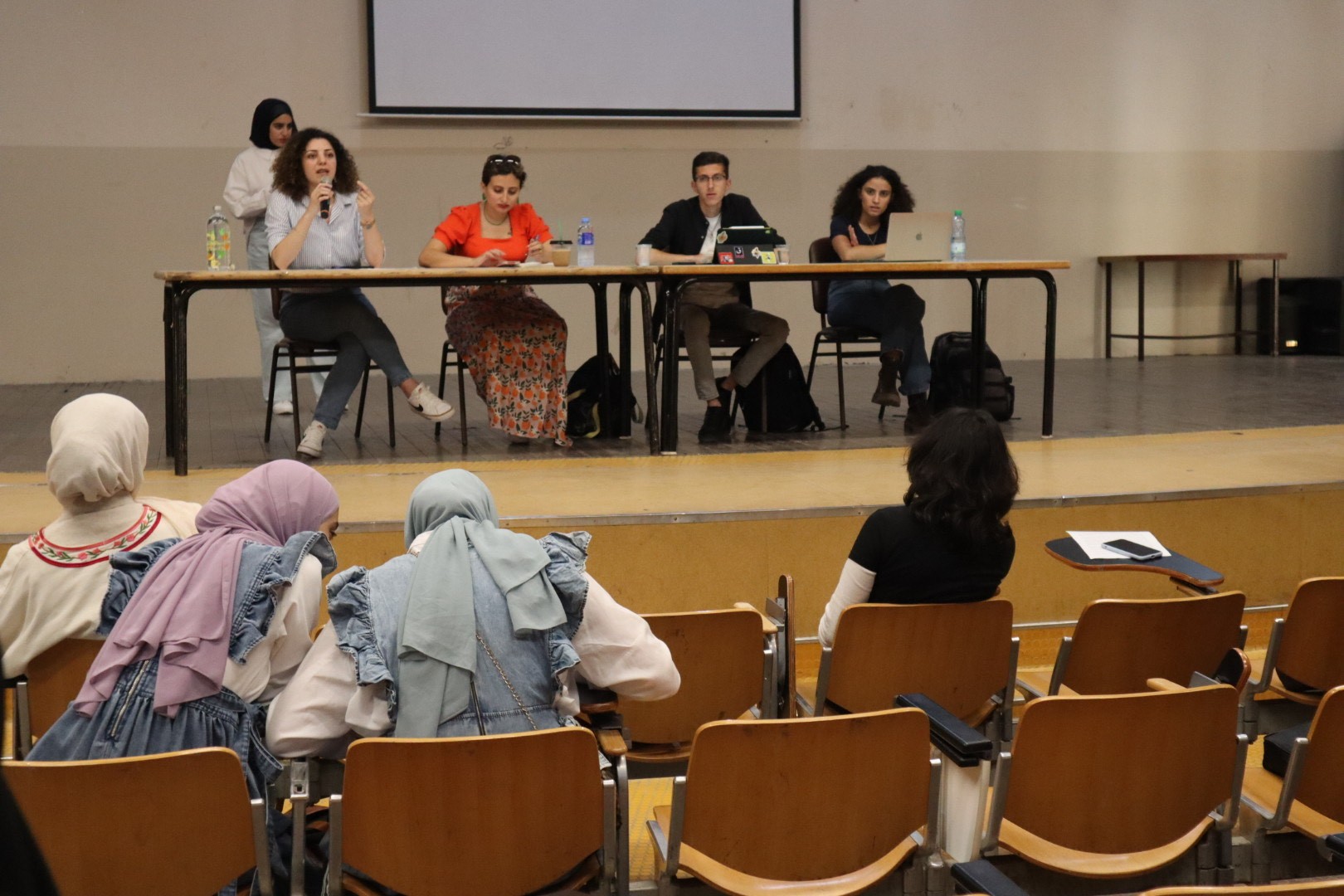The Human Rights Factory (a student initiative hosted by Muwatin Institute for Democracy and Human Rights) held a student discussion on the concept of "Searing of Consciousness" (as coined by the martyred prisoner Walid Daqqa), on Tuesday, 28 May 2024, at Kamal Nasser Hall.
Dana Farraj, a researcher at Muwatin Institute, initiated the activity by introducing the Human Rights Factory, which is intended for students to think and immerse in collective intellectual discussions, and break free from intellectual projections, whether in the education system or the consumer market. In addition to formulating an emancipatory concept of human rights in an interdisciplinary intellectual framework; philosophical, historical, judicial, and political fields. She highlighted the Factory's affiliation with the research project that Muwatin Institute is working on in partnership with the University of Antwerp (Belgium) entitled "Emancipatory Human Rights", which includes, in addition to conceptual development, the preparation of policy papers on relevant issues on the impact of the colonial condition on Human Rights in Palestine. A group of Students introduced the main topics and moderated the discussion within three main pillars.
Cesar Haddad (Faculty of Law and Public Administration) discussed the concept of torture and the need to "enhance our understanding of the concept, and work to overturn systematic colonial policies and the intellectual assumptions behind them." He also tackled Israeli surveillance policies on Palestinians inside and outside prison, through the use of technological mechanisms that contain Palestinians wherever they are, in addition to making them feel they are constantly under surveillance. He also posed a series of questions for discussion, which focused on how we can confront the process of searing of consciousness, as "he who does not analyze his reality cannot understand it, and he who does not understand his reality cannot confront it", and what is the role of student movements in facing and defying fear?
Ghaied Hijaz (Faculty of Business and Economics) addressed the concept of "moral infrastructure" of the colonized, collective action, and how the colonizer seeks to heighten the stakes of resistance through the use of a racist, totalitarian, colonialist regime that relies on the "political annihilation of the people, that is, the deep dismantling of the capacity to resist as a prelude to physical annihilation and expulsion." She went on to address the project of "stabilizing reality and dismantling the infrastructure of the people, so that the Palestinians become less than a people and above physical elimination." She recalled Ghassan Kanafani's saying "there is no individual solution to a collective problem", which implies the importance of accumulating revolutionary collective action for liberation and self-determination, and what this requires from moving out of the private space and individual demands, solutions and struggles to the collective struggle.
Rawan Al-Masri (Faculty of Arts - MA Cultural and Critical Studies) discussed the targeting of Palestinian identity in the student movement in US universities, the importance of collective demands in the movement, not settling for improvement, and how the movement was able to confront attempts to fragment the Palestinian identity over decades, confront the commodification of education within the neoliberal hegemony model, raise the slogan "the popular university for Gaza" and "we will seize control over our institutions, campus by campus, until Palestine is free", called for "severing ties and associations with the universities of the occupation state, standing by the Palestinian struggle, and rebuilding universities to be independent of the unethical US economic and political system." She concluded by highlighting the importance of solidarity and cohesion in the struggles of the oppressed, referring to the message of political prisoner Mumia Abu-Jamal to the students in the movement about the need not to be satisfied with demanding a ceasefire in Gaza strip, but to demand an end to the occupation.

